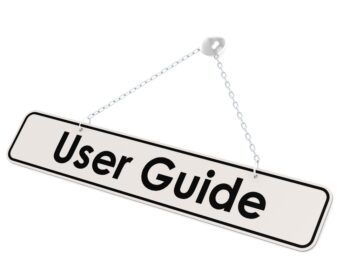
Outlining the Nature of the Dispute
The requirements for workers’ compensation settlement agreements vary in each jurisdiction. Never forget to understand the essential requirements and include them in your settlement agreement. Failure to do so will only cause future problems. A general survey of state workers’ compensation laws note the following basic requirements:
- Materials Facts: Any settlement agreement should have a statement of admitted material facts.
- Matters in Dispute: The disagreements between the parties should also be stated. It is important to allow the compensation judge or commissioner reviewing the document to know what matters are to be decided by the settlement agreement.
- Positions of All Interested Parties: The claims and contentions of each party must be stated in the settlement document. These statements outline what is in
Click Link to Access Free PDF Download
“8 ‘Think Outside the Box’ Tactics to Settle Workers’ Comp Claims”
A settlement agreement should also specifically outline what is being settled and how the issues are resolved. The main item in this area is a lump sum or annuity payment to an injured worker and various agreements regarding medical providers and other interested parties. A settlement consultant should be brought in to explain the options and benefits of receiving the money via periodic payments compared to a single lump sum.
If any issues remain in dispute, it is important to detail those matters. Statute or rule also govern payments under a settlement agreement. Failure to make timely payments can result in an assessment of penalties.
Types of Settlement Agreements
The types of settlements available under a workers’ compensation system vary in each jurisdiction. In some instances, the parties are not able to close out future medicals. In other instances, this is the norm.
- Full, Final and Complete – Including Future Medicals: Under this type of settlement, all workers’ compensation benefits are forever closed out. If you want something closed out, be sure it is clearly stated in the settlement document.
- Full, Final and Complete – Future Medicals Open: This is a settlement where all indemnity benefits (TTD, TPD, PPD, and PTD) are closed out. Medical benefits are typically only closed out through the date of settlement or some other specified period of time. The employee remains eligible for future medical care and treatment provided it is reasonable, necessary and causally related to the work injury.
- Partial or “To-date” Settlements: This is a type of settlement where only certain benefits are closed out, or all workers’ compensation claims are resolved through the date of settlement. Again, it is important to specify with precision what benefits are being closed out and through what date of the closure.
A competent workers’ compensation attorney should be part of this conversation.
Never Forget the Basics!
Regardless of jurisdiction, there are several guiding principles to keep in mind:
- A workers’ compensation settlement may never really be final. Most workers’ compensation acts allow for rescission of the settlement or for it to be vacated should it be determined there was a mutual mistake of fact, fraud or significant unanticipated change in the employee’s medical condition.
- All settlements are presumed to be fair, reasonable and in conformity with the workers’ compensation act. Extra scrutiny can apply in instances where the employee is not represented by an attorney.
- A workers’ compensation settlement must be memorialized in writing and approved by a compensation judge or industrial commission. Failing to receive this stamp of approval can render your settlement agreement meaningless.
Conclusions
Like any legal document, a settlement agreement needs to be carefully drafted and written with precision. Failure to do so can cause unnecessary (and unanticipated) future expenses.
“Sloppy, imprecise drafting can lead to legal wrangling. A single word in reciting the terms of a settlement, for example, can bring about intense litigation over interpretation. In drafting settlement agreements, lawyers should, quoting novelist Vladimir Nabokov’s advice to writers, ‘have the precision of a poet,’ leaving out the poet’s creativity, originality or artistic flourishes. Had the lawyers here been more studious and careful in choosing a single word (‘plus’), this case undoubtedly would not have been necessary.” Paluch v. UPS, 2014 Ill. App. LEXIS 283 (Ill. Ct. App. 1st 2014)

Contact: mstack@reduceyourworkerscomp.com.
Workers’ Comp Roundup Blog: https://blog.reduceyourworkerscomp.com/
©2018 Amaxx LLC. All rights reserved under International Copyright Law.
Do not use this information without independent verification. All state laws vary. You should consult with your insurance broker, attorney, or qualified professional.



























